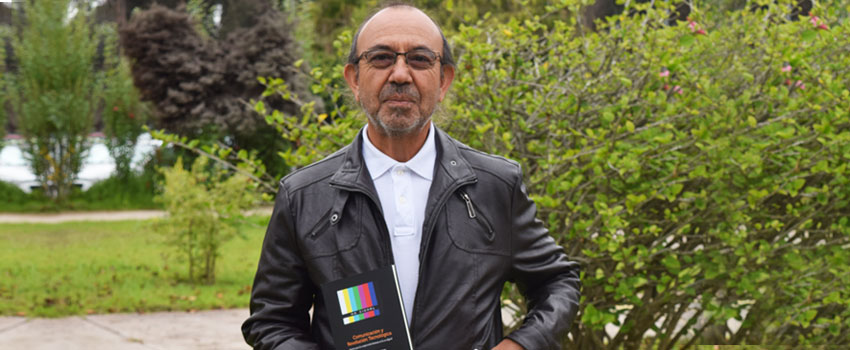- News
They present a book on communication and the technological revolution

The publication by academic Francisco Roco addresses communication as a process of construction of the human being.
As “a debt to the School of Journalism” Dr. Francisco Roco Godoy cataloged “Communication and Technological Revolution, contributions to human understanding in the digital age”, his new publication that was released in March, through the Editorial from the University of La Serena, and which includes the topics that he has discussed during his Communication Theory lectures with the ULS Journalism students in the last years of his degree and that also explains the change and adaptation that man and its realities in this era.
“It is a book that is focused on students, on journalists, but I think also on common people, because its fundamental thesis is that communication is not only a vehicle of information, but also has an element as a builder of reality.” , whether personal or social. The thesis of the book is basically that communication is a process of construction of the human being,” Roco indicated about the content of this publication and that it has been one of the topics that he has discussed in his Communication Theory classes.
The academic also commented on the importance of this publication at this point in his professional career, as he celebrates 40 years as a professor. “In this job you look back and see that everything has disappeared. As you work with people, they leave and fulfill their own destinies and that is the best. So I wanted to leave in this book, as in the others that I have published, a trace, evidence of so many things that we have talked about in so long as to justify to myself all these years installed in a classroom,” said the academic.
“This gives us a projection as a career in the field of disciplinary publications that we need to be able to strengthen our institution and our teaching. And it is also a great contribution for our students who can find in this text a deep academic look at communication and technological revolution,” said the Director of the School of Journalism, Mg. Cristian Muñoz Catalán.
The book is part of the initiatives benefiting from the DIDULS Monographs and Academic Texts Contest.
Written by Rolando González, School of Journalism
